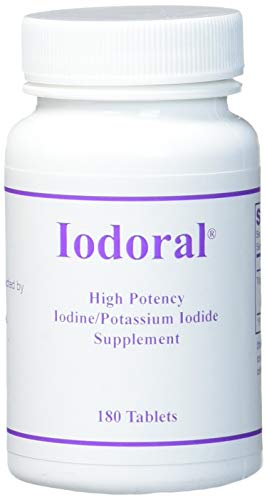It is not an understatement to say our existence, and the quality of our lives, depends on having adequate iodine levels. In spite of this, mainstream medicine generally ignores the importance of this element. The following fifteen facts will reveal not only how important iodine is, but how much better your life can be with balanced levels of this life-giving element.
1. Iodine is an Essential Element
The thyroid creates hormones to regulate metabolism and cellular function. The two most important hormones triiodothyronine (T3) and thyroxine (T4) require iodine for formation. Without iodine, the thyroid under-produces these hormones leading to hypothyroidism and other metabolic disorders.
 The Iodine Crisis: Wha...
Best Price: $11.50
Buy New $15.00
(as of 10:30 UTC - Details)
The Iodine Crisis: Wha...
Best Price: $11.50
Buy New $15.00
(as of 10:30 UTC - Details)
2. Iodized Salt is Not a Good Source of Iodine
Most table salt has been iodized in an effort to eliminate iodine deficiency. Unfortunately, the process of manufacturing this salt can include adding artificial versions of iodine and other chemicals, making it anything but healthy. Plus, to make it white, most table salt is bleached. Dietary iodine can be found in better sources. And, for salt, go with Himalayan Crystal Salt.
 Enviromedica Nascent I...
Buy New $37.01
(as of 05:05 UTC - Details)
3. Iodine Deficiency Remains a Problem
Enviromedica Nascent I...
Buy New $37.01
(as of 05:05 UTC - Details)
3. Iodine Deficiency Remains a Problem
Much of the world continues to suffer from iodine deficiency. While many developing countries lack adequate dietary iodine, many western countries suffer iodine deficiency from diets based on processed foods. These foods introduce toxins which disrupt absorption of dietary iodine. This problem afflicts women more often than men.
4. Iodine Deficiency and Breast Cancer Have Been Linked
Although breast cancer has a number of causes and simply taking an iodine supplement shouldn’t at all be interpreted as a standalone cancer-preventative, studies have shown a correlation between breast cancer and thyroid disorders. Both the thyroid and breast require iodine to function properly. It has been noted in countries with a documented consumption of iodine rich foods that both problems occur less frequently in women. [1]
5. Good Dietary Sources of Iodine are…
 OPTIMOX Iodoral IOD 12...
Buy New $28.99
(as of 09:55 UTC - Details)
Most dietary sources of iodine come from the sea. Fish such as cod, shellfish and shrimp provide better-than-average servings of dietary iodine. Sea vegetables like dulse seaweed, kelp, arame, kombu, nori, sea palm and wakame are the richest source of iodine. Other sources include eggs, organic milk and yogurt, dark leafy greens and prunes.
OPTIMOX Iodoral IOD 12...
Buy New $28.99
(as of 09:55 UTC - Details)
Most dietary sources of iodine come from the sea. Fish such as cod, shellfish and shrimp provide better-than-average servings of dietary iodine. Sea vegetables like dulse seaweed, kelp, arame, kombu, nori, sea palm and wakame are the richest source of iodine. Other sources include eggs, organic milk and yogurt, dark leafy greens and prunes.
6. ‘Iodine Allergies’ are not caused by Iodine
While many doctors mistakenly refer to iodine allergies, rest assured no one has exhibited an allergy to this vital nutrient. Most allergies attributed to iodine result from an allergic response to iodine-based radio contrast media
 The Spice Lab Himalaya...
Buy New $7.49 ($0.23 / Ounce)
(as of 06:20 UTC - Details)
used to sharpen images from x-rays or CT scans. Studies have found the reactions resulted from molecules in the contrast media, not iodine. It is worth noting that while mild symptoms may be the usual response, anaphylactic response and death have occurred. Those ‘iodine allergies’ associated with seafood occur as reactions to proteins in the seafood, not as a reaction to iodine.
The Spice Lab Himalaya...
Buy New $7.49 ($0.23 / Ounce)
(as of 06:20 UTC - Details)
used to sharpen images from x-rays or CT scans. Studies have found the reactions resulted from molecules in the contrast media, not iodine. It is worth noting that while mild symptoms may be the usual response, anaphylactic response and death have occurred. Those ‘iodine allergies’ associated with seafood occur as reactions to proteins in the seafood, not as a reaction to iodine.
7. Iodine Helps Fight Harmful Organisms
Iodine has been used for centuries as a topical application to harmful organism infection. To this day it has proven effective against most varieties. Hospitals continue to use gallons of iodine daily to fight harmful microorganisms and maintain a sterile environment.





